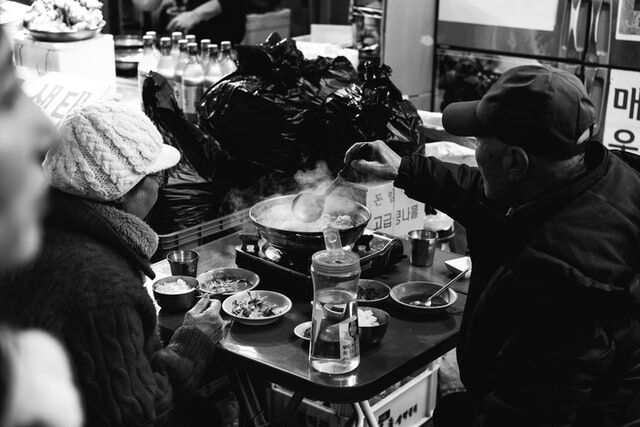The correlation between Korean dramas and relationships
Korean dramas have increased in popularity in the U.S. and have affected students’ perceptions of relationships.
October 25, 2020
An accidental landing in North Korea, getting caught by a North Korean military captain who instead rescues and hides her as they battle danger to avoid being caught — a classic Korean drama (K-drama) plot.
According to Iowa State students, these K-drama scripts and scenery are the reason why K-dramas make it difficult for students at Iowa State to exchange goodbyes. K-dramas are focused on love lines, creating a vision of men students hope for in real life; however, it has a harmful effect, according to students.
“A lot of the guys in Korean dramas are very chivalrous … they’ll go out of their way to do a bunch of dramatics for the girl,” said Julia Stetzel, a junior in management information systems. “… Even though I know in real life it wouldn’t happen, I still … want him to run through the rain for me.”
The rise of K-drama popularity can be credited to the offering of a “different aesthetic mode of modernity” and a different version of society, Ji Yeon Yuh, a professor in Asian-American studies at Northwestern University, said in an interview with NBC News.
K-dramas are so enticing because of the men and how they tend to their leading ladies, students said.
“I feel like K-drama set the standard too high for me so that when I would actually meet guys, I was like, ‘Oh, this [is] nothing like K-drama,’” said Cindy Ly, a sophomore in apparel, merchandising and design.
Similarly to Ly, Abigail Boongaling, a senior in chemical engineering, felt the same way about men in K-dramas.
“Just the way they treat the woman in the lead role, it’s so romantic,” Boongaling said. “That’s [how] I want to be treated, too. It’s so cute, they’re so happy with each other and how the guy loves the girl … it makes me head over heels for love, like that’s exactly what I want.”
She explained that K-dramas also show her the men’s perspective. Boongaling said that compared to American dramas or movies, someone can never tell how the guy is feeling, but the men’s perspective and their feelings are portrayed with K-drama.
“Korean men in dramas are so different than men in reality,” Boongaling said, expressing disappointment between the contrasting reality of K-drama men and men in real life. “They’re like nice gentlemen, so polite and their fashion sense is just better, more attractive …. They’re definitely not realistic compared to guys in real life.”
Despite yearning for love like the ones in K-dramas, students acknowledge the unrealistic expectation it produces and are cautious not to let it mix into their reality.
Ly mentioned how endearing it was for the leading man in “Crash Landing on You” to hide and protect his woman in North Korea despite the dangers.
“It’s not like I expect to meet guys like that, it just would be nice to have guys like that,” Ly said.
Many students said it’s comforting to think something like that could happen to them.
While K-dramas can be entertaining with their portrayal of men in particular situations, the indebted engagement can be potentially harmful.
“It can be a bad influence if you’re only seeing what you see through the media as reality,” Stetzel said. “Because then, you would just expect all these Korean guys to be like these great, big, strong men who would never do anything wrong.”
She said the formation of relationships and love in K-dramas differ from reality.
“Sometimes you have to make the first move and make things happen for yourself in order for good things in a relationship to come forth,” Stetzel said.







